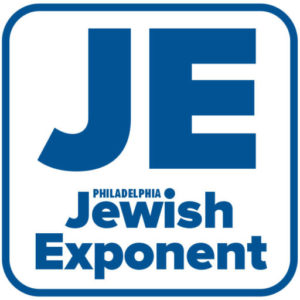 Israel isn’t much of an issue to the voters of Prince George’s County, Maryland. But last month’s Democratic primary in Maryland’s 4th Congressional District, which includes most of the county, attracted millions of dollars in dueling pro-Israel campaign contributions.
Israel isn’t much of an issue to the voters of Prince George’s County, Maryland. But last month’s Democratic primary in Maryland’s 4th Congressional District, which includes most of the county, attracted millions of dollars in dueling pro-Israel campaign contributions.
In the end, the better candidate won — former state’s attorney Glenn Ivey, who has a strong record of performance and communal involvement, prevailed and will likely be elected in November in the heavily blue district. Although Ivey shares many of the progressive positions of his defeated rival, former Rep. Donna Edwards, including on gun control, health care and climate change, they differ on Israel.
Ivey supports continued U.S. security assistance for Israel, embraces a further strengthening of the U.S.-Israel relationship and opposes the boycott, divestment and sanctions movement and other efforts to delegitimize the Jewish state. Edwards’ record in office was less than stellar when it came to Israel.
Enter the pro-Israel money, for both candidates. Nearly $6 million went to Ivey from United Democracy Project, a super PAC affiliated with AIPAC. Another pro-Israel group, Democratic Majority for Israel, spent an additional $426,000 in support of Ivey. The Washington Post reported that about half of Ivey’s $1 million in campaign contributions also came from AIPAC donors. Edwards received some $720,000 in PAC money from J Street.
How was the money used? Not to play up the strengths of either candidate and largely not to address substantive policy differences between them. Instead, the money was used to fund attack ads, many of which ended with these words: “Donna Edwards, aloofness from the details of local problem solving, notorious for inattention to constituent services. UDP is responsible for the content of this ad.”
In the blizzard of ads leading up to the primary vote, Israel was not mentioned.
So, what have we learned from this $7 million exercise? We learned a lesson in contemporary politics and the outsized influence national special-interest groups can have in local political campaigns. The expenditures were entirely legal, above board and transparent. But the sheer magnitude of the effort is noteworthy.
Members of special interest groups, including AIPAC, have lent support to political candidates of all stripes for decades. Many did so in a very public way, while others worked more quietly behind the scenes. Both were effective. But now, with changes in how supporters can organize and fund political messaging, AIPAC and other groups have chosen to take the more public approach through affiliated super PACs. And they have mastered the art of negative ads.
We know from media reports that many voters in Prince George’s County had never heard of AIPAC and that some expressed concern and confusion when informed about millions in “outside money” being invested in their local campaign. But we also know that the investment succeeded. Ivey overcame an initial significant early polling deficit and won the election by 16 percentage points.
It is hard to argue with success. We are happy that the better candidate won. But the message of Israel got lost.



